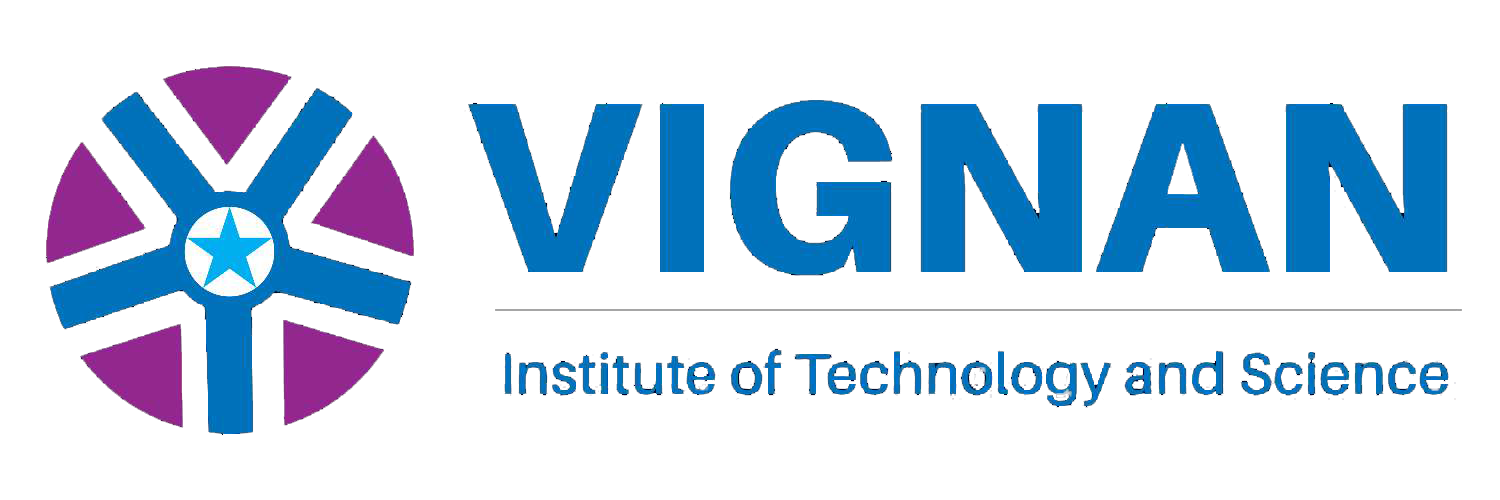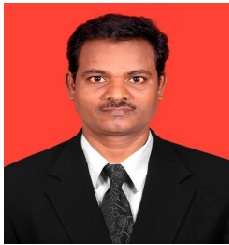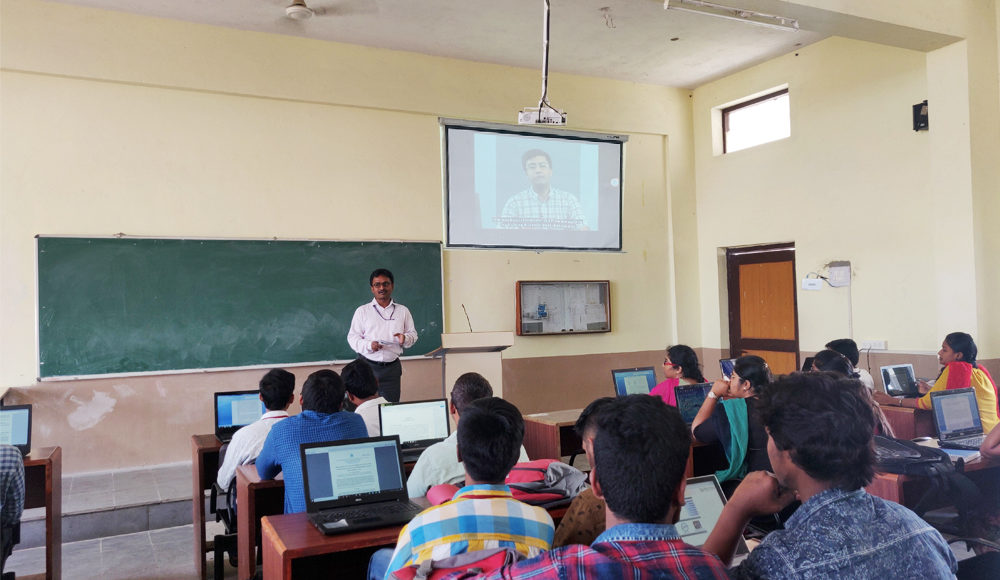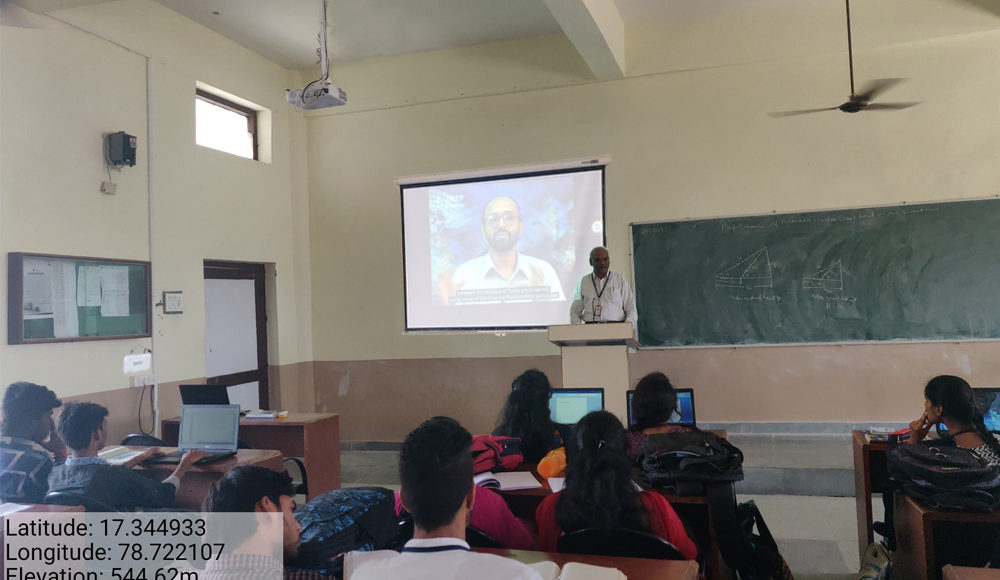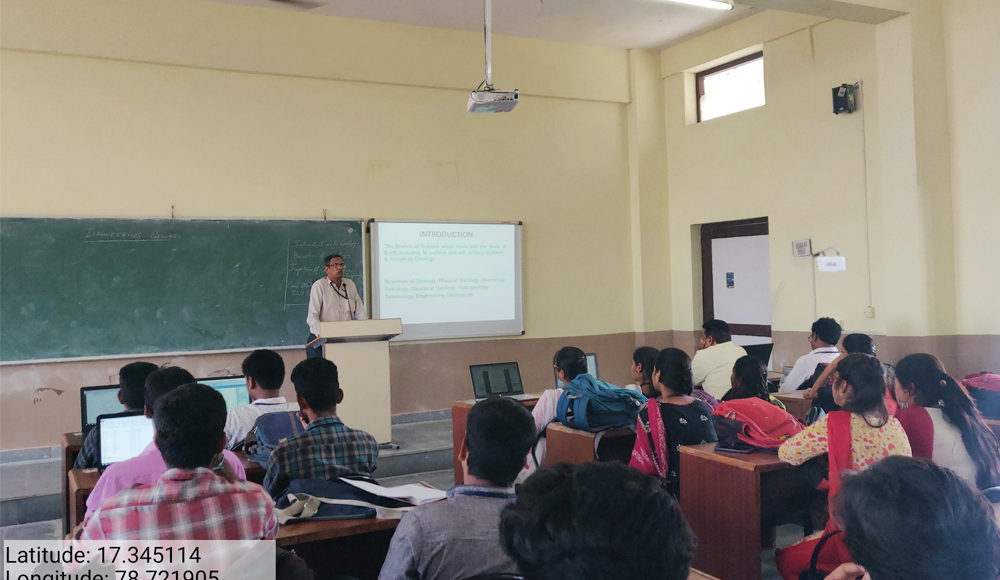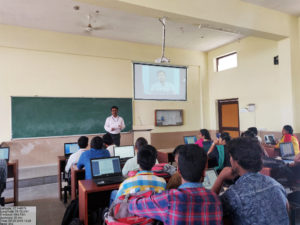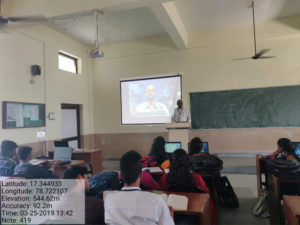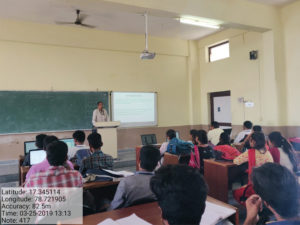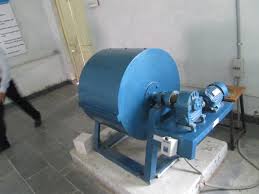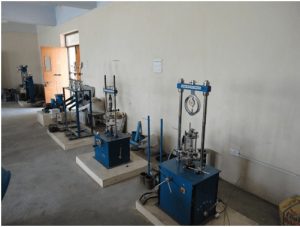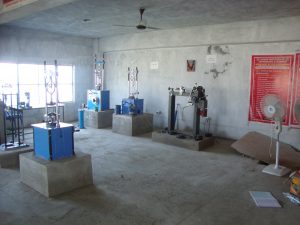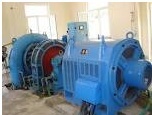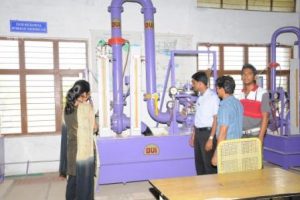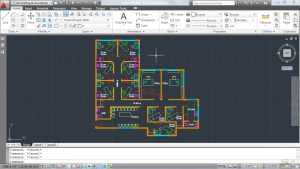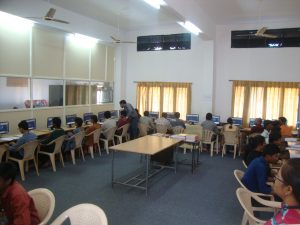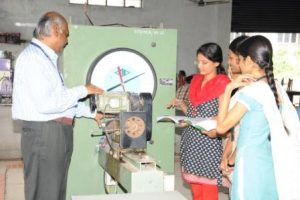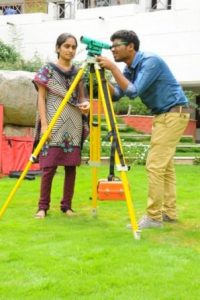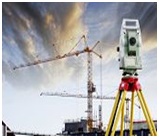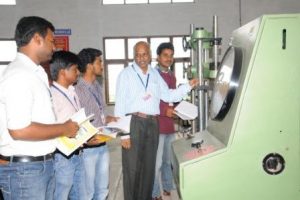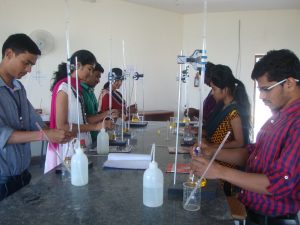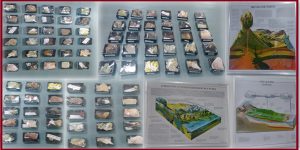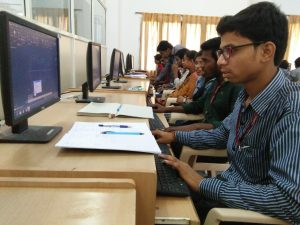| S.No |
Title of the linkage |
Name of the partnering institution
/ industry /
research lab with contact details |
Academic Year |
Duration (From-To) |
Accompanying Faculty |
| 1 |
One Day Industrial Visit to Institute of Surveying & Mapping – 2012 Batch |
Survey of India, Institute of Surveying & Mapping,
Uppal, Hyderabad – 500 039. INDIA Phone: 040-27201181 |
2013-14 |
1 Day
(11-03-2014 to 11-03-2014)
|
Ms. K. Manasa and Ms. K. Mounika |
| 2 |
One Day Industrial Visit to Andhra Pradesh Engineering
Research Laboratories (APERL) – 2012 Batch |
Andhra Pradesh Engineering Research Laboratories, Himayatsagar, Rajendranagar mandal, Hyderabad, Telangana 500030 |
2014-15 |
1 Day
(15-10-2014 to 15-10-2014)
|
Mr. A. Upender, Ms. K. Manasa and Ms. K. Mounika |
| 3 |
One Day Industrial Visit to Construction
Site – Mythri Gokulam I – 2013 Batch |
M/s. Mythri Constructions, Ramoji Film City, Hyderabad
– Vijayawada Hwy, Abdullapurmet, Hyderabad, Telangana 501505 |
1 Day
(16-10-2014 to 16-10-2014)
|
Ms. J. Gayathri, Ms. K. Manasa and Ms. K. Mounika |
| 4 |
One Day Industrial Visit to National Academy of
Construction – 2012 Batch |
National Academy of Construction,
NAC Grounds, Cyberabad, Hyderabad, Telangana State, India – 500 084. Land Line: (040) 23111916-917 |
1 Day
(14-02-2015 to 14-02-2015)
|
Mr. A. Upender, Ms. K. Manasa and Ms. K. Mounika |
| 5 |
One Day Industrial Visit to Institute of Surveying &
Mapping – 2013 Batch |
Survey of India, Institute of Surveying &
Mapping, Uppal, Hyderabad – 500 039. INDIA |
1 Day
(25-03-2015 to 25-03-2015)
|
Mr. A. Upender, Ms. J. Pravallika |
| 6 |
One Day Industrial Visit to Telangana State Engineering
Research Laboratories – 2013 Batch |
Telangana State Engineering Research Laboratories,
Himayatsagar, Rajendranagar mandal, Hyderabad, Telangana 500030 |
2015-16 |
1 Day
(05-08-2015 to 05-08-2015)
|
Ms. Manasa K & Mr.Ramamohana Reddy B |
| 7 |
One Day Industrial Visit to Lanco Hills, Lanco Infratek – 2012 Batch |
Lanco Infratech Limited, SY.No.201 | LH-9 Tower,
Building Basement – 2, Manikonda – Vill & P.O, Rajendra Nagar – Mdl, PIN: 500089. R.R.District.
Phone : + 91-40- 66216001. Mobile : +91 995966702. www.lancogroup.com |
1 Day
(08-09-2015 to 08-09-2015)
|
Mr. Karthik Chary T & Mr. Mahesh B |
| 8 |
One Day Industrial Visit to Geological Survey of India – 2013 Batch |
Additional Director General & HOD,
Geological Survey of India, GSI Complex, Bandlaguda, Hyderabad – 500 068. Telangana |
1 Day
(15-03-2016 to 15-03-2016)
|
Dr. Narayan Sangam & Mr. Karthik Chary T |
| 9 |
Two Day’s Industrial Visit to Kirby Building Systems India Private Ltd – 2013 Batch |
Kirby Building Systems India Private Ltd.,
Plot No: 8-15, IDA Phase-III, Pashamylaram, Medak (distict) – 500 037 |
2016-17 |
2 Days
(18-07-2016 to 19-07-2016)
|
Ms. Vaishali Devi M, Mr. Karthik Chary T & Mr. Ramamohana Reddy B |
| 10 |
One Day Industrial Visit to Construction Site – Mythri Gokulam II – 2014 Batch |
M/s. Mythri Constructions, Ramoji Film City,
Hyderabad – Vijayawada Hwy, Abdullahpurmet, Hyderabad, Telangana 501505 |
1 Day
(01-10-2016 to 01-10-2016)
|
Mr. Karthik Chary T & Mr. Mahesh B |
| 11 |
One Day Industrial Visit to Construction Site –
Pavani Boulevard in Kokapet, West Hyderabad by Pavani Group – 2015 Batch |
M/s.Pavani Group, 701 6-3-789, Pavani Prestige,
Ameerpet, Hyderabad, Telangana 500016 Phone: 040 2340 1758 |
1 Day
(15-02-2017 to 15-02-2017)
|
Ms. Harini B & Mr. Mahesh B |
| 12 |
One day industrial visit to Akkampally balancing Reservoir and Water Treatment Plant – 2014 Batch |
The Technical Director,
Hyderabad Metropoliton Water Supply and Sewerage Board (HMWS&SB), Khairtabad, Hyderabad – 500 004 |
1 Day
(25-02-2017 to 25-02-2017)
|
Mrs. Lavanya B & Mr. Karthik Chary T |
| 13 |
One day industrial Visit to Institute of Surveying & Mapping – 2015 Batch |
The Additional Surveyor General,
Survey of India, Institute of Surveying & Mapping, Uppal, Hyderabad – 500 039. INDIA Phone: 040-27201181 |
2017-18 |
1 Day
(12-10-2017 to 12-10-2017)
|
Ms. Sai Shraddha & Mr. Mahesh B |
| 14 |
One day Industrial Visit to Sewage Treatment Plant – 2015 Batch |
The Chief General Manager, Quality Control and Vigilance Circle,
Hyderabad Metropoliton Water Supply and Sewerage Board (HMWS&SB), Khairtabad, Hyderabad – 500 004 |
1 Day
(09-01-2018 to 09-01-2018)
|
Ms. Sai Shraddha & Mr. Karthik Chary T |
| 15 |
One day Industrial Visit to Pre-cast pre-stressed girder plant – 2016 Batch |
The Project Manager, M/s. BSCPL Infrastructures Ltd.,
Survey No: 446, Pillaipally, Pochampally, Nalgonda – 508 224 |
1 Day
(27-01-2018 to 27-01-2018)
|
Ms. Manasa K & Mr. Mahesh B |
| 16 |
One day Industrial Visit to WALAMTARI – 2015 Batch |
Water and Land Management Training
And Research Institute (WALAMTARI), Himayathsagr, Rajendranagr, Hyderabad – 500 030. Telangana. Phone: 040-24006201 |
2018-19 |
1 Day
(28-07-2018 to 28-07-2018)
|
Ms. Pragya Shahdeo & Mr. Mahesh B |
| 17 |
One day Industrial Visit Hydro Electricity Generation Unit at Nagarjuna Sagar Dam- 2016 Batch |
The Superintending Engineer, Operation & Maintenance Circle, N.S.H.E Scheme, Pylon Colony, Nagarjuna Sagar – 508 202 |
1 Day
(08-09-2018 to 08-09-2018)
|
Mrs. Lavanya B & Mr. Karthik Chary T |
| 18 |
One day Industrial Visit to Bhadadri Thermal Power Plant – 2017 Batch
(Referred by: Mr.Narender-7093031437Alumni Student)
|
The Chief Engineer (Construction), Bhadradri Thermal Power Station (BTPS) 2X470 MW,
Near Edulla Bayyaramar, Manuguru, Kothagudem (Dist), Telangana State 507117
|
1 Day
(29-01-2019 to 27-08-2019)
|
Ms. Madhuri & Mr. Karthik Chary T |
| 19 |
One day Industrial Visit to Water Treatment Plant, Kodandapur – 2016 Batch |
To Executive Director, HMWS&SB, Khairtabad, Hyderabad, – 500 004. Telangana State |
1 Day
(23-02-2019 to 23-02-2019)
|
Mrs. Vineela P, Mr. B Mahesh & Mr. Srikanth K |
| 20 |
One day Industrial Visit to Survey of India – 2017 Batch |
The Additional Surveyor General, Survey of India,
Institute of Surveying & Mapping, Uppal, Hyderabad – 500 039. INDIA Phone: 040-27201181 |
1 Day
(15-02-2019 to 15-02-2019)
|
Ms. Madhuri & Mr. Kastro Kiran |
